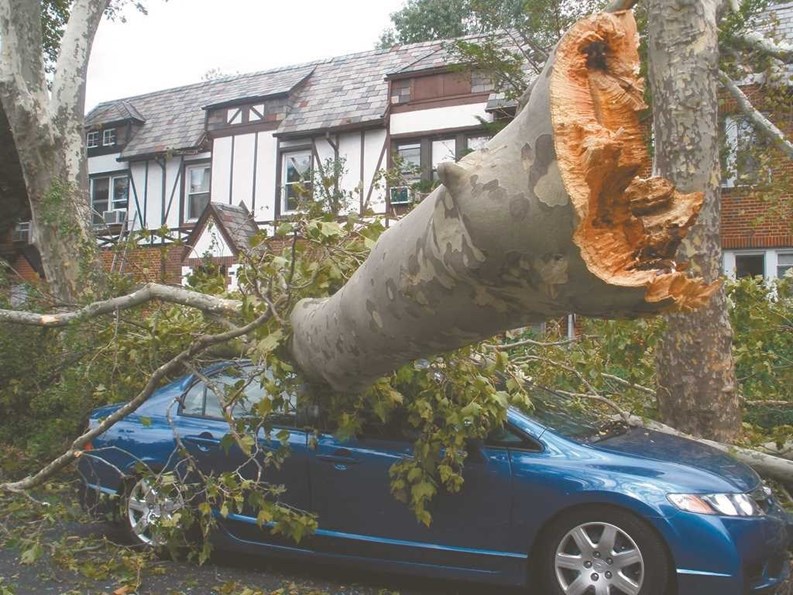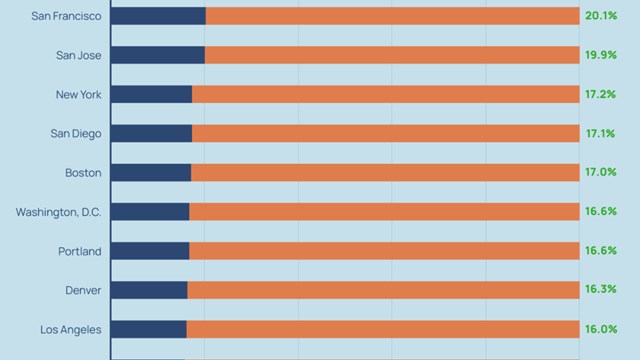Tsunamis, earthquakes, tornadoes—these are just a few of the devastating disasters that have made headlines already in 2011 and the emergency situations that resulted many never thought possible.
As the past year’s calamitous snowstorms, earthquakes, and even dreaded bedbug infestations have demonstrated, sometimes you just can’t plan for everything, and that’s especially true when you are living in a co-op or condo.
Any financially solvent co-op or condo building has both an operating budget to cover day-to-day expenses associated with running the building and a reserve fund that’s in place to pay for larger repairs and capital improvement projects. But what would happen if something devastating were to happen?
“The best thing a co-op/condo can do is to prudently take care of hazards or developing hazards at the building, mitigating risk,” says Todd Ross, president of Manhattan-based TM Ross Insurance Brokerage, LLC. “Putting in place proper risk transfer documents between the building and contractors that enter the building or between unit owners and their contractors, enforcing the requirement for unit owners and [general contractors] to have proper insurance, and to sign proper contract with hold harmless and indemnification provisions, are things a building can do to manage risk.”
Smart boards will prepare and plan financially for a worst-case scenario, say the pros. Building some ‘wiggle room’ into a building’s budget can help fill the gaps between operating and capital expenses, and can spare residents from huge assessments and/or maintenance increases.
“Capital projects are typically defined as replacement projects as opposed to a maintenance project,” says William J Pyznar, P.E., a principal with The Falcon Group, an engineering consulting firm headquartered in Bridgewater, New Jersey. “Capital [replacement] projects are typically funding via reserves and maintenance projects are typically funded via operating funds.”
The What-If Factor
While it may be true that devastating floods or tornadoes aren’t usually things that New Yorkers need to worry about, Mother Nature does have a sick sense of humor sometimes, and buildings need to prepare for hypothetical emergencies just in case. Case in point was the damage caused by an unexpected tornado that touched down in Queens last fall.
“To protect against financial devastation, all buildings should create a line item in their budget for replacement reserves,” says Alex Kuffel of Pride Property Management Corp. “Unfortunately, very few buildings actually do this. This matter of fiscal discipline, correlating to the personal finance principle of ‘paying yourself first,’ is an essential key to solvency and every managing agent should include this as part of the budgeting process.”
Depending upon the severity of the catastrophe, if budgeting is being done properly and insurance coverage is adequate, the building should have enough reserves to take up any slack. The alternative for paying for damages from non-covered insurance events is through special assessments, which are never popular with residents.
Unexpected Assessments
In some extreme cases, a building may suffer damage and be forced to level a special assessment on residents. Considering the economic climate we live in today, residents may not always have the funds available to pay these. But, just like taxes, the assessments must be paid.
“I would say that if a unit owner cannot make a special assessment, the other owners would be forced to absorb that cost—albeit indirectly—and the board would be able to take some legal action,” Ross says. “A lien can be issued against the unit or unit owner to protect their rights if the co-op or condo had to pay the deficient amounts owed.”
Generally, the bylaws and/or governing documents of the co-op/condo would provide an answer to how and what the building can do.
Very often, financial criteria submitted in the application process is not adequately interpreted. Managing agents should be providing a complete dissemination of a purchase application and ensuring board members have everything they need to make an educated decision before the interview of a prospective shareholder occurs.
“This financial interpretation becomes extremely critical in the event of unexpected special assessments,” Kuffel says. “Since the current economic circumstances are unpredictable, it is essential that all shareholders read and understand the financial statements to better understand how his or her personal finances may be affected by the unexpected assessment. If a shareholder demonstrates hardship, the board should work with the resident to formulate a payment plan to which both parties agree.”
Some homeowners’ policies have special assessment coverage up to a certain amount that may help in this situation. Pyznar stresses the importance of a properly funded reserve and maintenance plan, as well as regular inspections and maintenance of the vital systems of a building or property.
“Some associations have the funds or means to set up a payment plan,” Pyznar says. “If owners cannot pay, there is often the potential to lien the unit.”
Withholding payment of a special assessment could be dangerous for an owner, since a board may have the right to seize the owner’s unit if he or she fails to pay the fee.
Insurance Issues
Insurance does not and cannot cover everything. For those perils that cause devastating “insurable” losses (classified as low frequency/probability and high severity), it’s necessary to make sure that your insurance coverage’s have appropriate limits and broad coverage terms.
“Viewing insurance as an asset as opposed to an annual expense allows boards to be open to the perspective that quality products, be it financial or otherwise, provide better coverage terms,” Ross says. “The cost differential between a quality insurance product and an inferior product may be a few percentage points, which when weighted against the coverage differences and the potential to have uncovered losses, is meaningless.”
Boards need to get away from viewing insurance as an expense item, even though it is an annual expense, it is an asset when needed. The cliché “you get what you pay for” is apt and then finding out after the fact that your insurance is not adequate or non-existent is not an optimal scenario.
Ross suggests that a building’s overall annual insurance (not including workers compensation and disability insurance) should be 3.5 to 4 percent of the total annual collected maintenance collected by a building. “When viewed this way, a board can view the overall cost to properly and adequately protect the asset as relatively small compared to other expense items on the P&L,” he says.
Under My Umbrella
Emergency situations are just that and the worst time to learn about your insurance coverage is when a loss is incurred. Very often, people assume that their insurance coverage will suffice and the umbrella coverage will cover any damages that aren’t covered by the first policy. This can be a very costly assumption.
“For instance, if a tornado causes damage, one would think that the storm itself would be a covered loss. However, wind damage is very often specifically excluded and these damages can be substantial,” Kuffel says. “Less obvious exclusions are ones that are deliberate or criminal. If a building is destroyed through the criminal act of arson, there would be no coverage for the loss.”
It’s up to the manager to review each policy to ensure that the board is aware of any potential exposure. Any direct property loss sustained directly to the building (considered first party losses) are not covered by an umbrella policy.
“Umbrella policies sit over the general liability policy and for co-op/condos, often sit over the D&O policy as well,” Ross says. “Depending on the terms and conditions the umbrella policy may not have overage for, or lower sub-limits of coverage for employment practice related claims, construction (structural) related work, mold coverage, or lead coverage.”
The facts of any case determine if there is coverage on the primary general liability policy so if the primary GL coverage does not give coverage, the umbrella will not follow with coverage generally. Furthermore the umbrella may have superseding exclusions on certain coverages.
Final Thoughts
It is impossible to eliminate risk, so any actions that are taken to mitigate and transfer risk to the party most responsible for causing the damage or loss are concentrate measures that can be taken to help protect a building.
“Insurance is not a maintenance or warranty product, nor is it an asset in a traditional sense—there is no inherent equity in an insurance policy,” Ross says. “Insurance is a risk transfer mechanism, so the quality of the coverages assuming the cost is in line with the broader market given the building’s risk profile and loss experience.”
To develop a robust reserve fund, directors can consider traditional methods of funding such as flip taxes, increased fees and assessments. However, often an opportunity to provide more amenities is missed.
Kuffel says that non-traditional income sources, such as fees from on-site gyms, storage, cell phone towers and community rooms serve a dual purpose by providing increased amenities with the benefit of an income stream. By adding funding like this, money can be stashed away for emergencies.
In the end, the fact is that sometimes, a board may have no choice but to raise maintenance or level an assessment on residents. It's never a popular decision to make, and most boards would prefer not to—but with intelligent, prudent planning and a realistic outlook on your community's finances, your administrative and management team may be able to come up with workable alternatives to assessments and hefty increases.
Keith Loria is a freelance writer and a frequent contributor to The Cooperator.







Leave a Comment